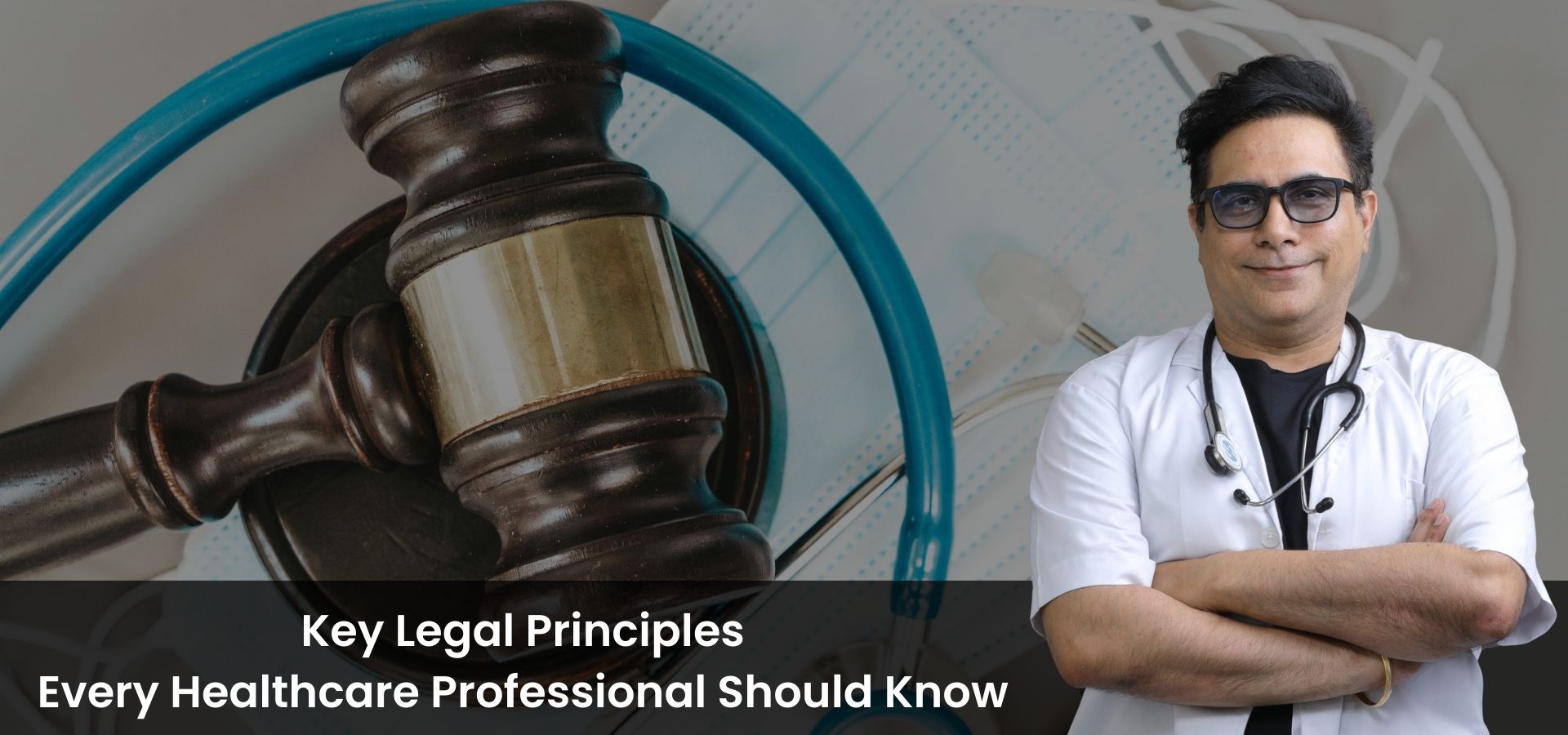Introduction
Healthcare professionals work in a highly regulated environment where legal knowledge is just as important as clinical expertise. Key Legal Principles Every Healthcare Professional Should Know include understanding duty of care, informed consent, confidentiality, and legal accountability. Mastering these principles not only protects practitioners from liability but also ensures ethical and patient-centered care.
1. Duty of Care
Healthcare providers have a legal and ethical obligation to deliver treatment that meets the accepted standard of care. This duty involves using professional skills, knowledge, and judgment to prevent harm and promote patient well-being.
2. Medical Negligence
Medical negligence occurs when there is a breach of the duty of care that results in harm or injury to a patient.
To establish negligence, three elements must be proven:
- Duty of Care existed.
- Breach of that duty occurred.
- The breach caused harm to the patient.
Awareness of these criteria helps professionals maintain safe practices and avoid legal disputes.
3. Informed Consent
Patients have the right to be fully informed before consenting to treatment.
A valid informed consent should include:
- Nature and purpose of the procedure
- Potential risks and side effects
- Available alternatives
- Likely outcomes of no treatment
Informed consent is both an ethical safeguard for patient autonomy and a legal requirement to prevent liability.
4. Confidentiality and Privacy
Patient information is protected under ethical obligations and legal frameworks such as the Information Technology Act and relevant privacy regulations.
Breaches of confidentiality can lead to:
- Loss of patient trust
- Professional misconduct charges
- Legal penalties
5. Documentation and Record Keeping
Accurate, complete, and timely medical records:
- Serve as legal evidence in disputes
- Support continuity of care
- Demonstrate adherence to standards of practice
Poor record-keeping is one of the most common weaknesses exploited in medical negligence claims.
6. Intersection of Medical Ethics and Law
Medical ethics guides practitioners on what they should do, while medical law dictates what they must do.
Key areas where they intersect include:
- Informed Consent – Ethical duty and legal requirement
- Confidentiality – Ethical principle reinforced by privacy laws
- End-of-Life Decisions – Ethical debates influenced by legal frameworks
- Medical Research – Ethics of participant welfare embedded in research regulations
Understanding these intersections is crucial, and exploring structured programs like the Medical Law and Ethics Course can help professionals gain deeper insights into the Key Legal Principles Every Healthcare Professional Should Know in real-world practice.
7. Liability and Accountability
Healthcare professionals can face:
- Civil Liability – Compensation claims for harm caused
- Criminal Liability – Penalties for gross negligence or unlawful acts
Being proactive in risk management reduces exposure to both forms of liability.
Medical Ethics vs. Medical Law: Understanding the Difference
| Aspect | Medical Ethics | Medical Law |
| Nature | Moral principles based on values | Legally enforceable rules |
| Source | Professional codes of conduct, moral philosophy | Statutes, regulations, court rulings |
| Enforcement | By professional bodies | By legal authorities and courts |
| Example | Respecting patient autonomy | Obtaining legally valid consent |
Final Thoughts
By mastering these legal principles and understanding their ethical context, healthcare providers can:
- Minimize legal risks
- Enhance patient trust
- Deliver care that is both morally sound and legally compliant
Staying updated on Key Legal Principles Every Healthcare Professional Should Know is not just a compliance measure—it’s a professional responsibility.


